June 21, 2025 | 03:07 GMT +7
June 21, 2025 | 03:07 GMT +7
Hotline: 0913.378.918
June 21, 2025 | 03:07 GMT +7
Hotline: 0913.378.918

Mr. Tran Manh Bao, Chairman of VSTA and Thaibinh Seed Group, delivering a speech at the workshop. Photo: PT.
The Vietnam Seed Trade Association (VSTA), in collaboration with the Department of Crop Production under the Ministry of Agriculture and Rural Development, organized a workshop on March 23, in Hue City. The workshop titled "Crop Varieties in the Strategic Development of Vietnam's Agricultural Sector" aimed to explore opportunities for the sustainable development of the crop variety sector.
During the workshop, Mr. Tran Manh Bao, Chairman of VSTA and Thaibinh Seed Group, stated that the Prime Minister issued Decision No. 1748/QD-TTg on December 30, 2023 to approve the Crop Production Development Strategy until 2023, with a vision towards 2050.
This strategy aims to develop crop production into a comprehensive, professional, economically competitive sector, with a focus on ensuring food safety, national food security and other economic needs, and increasing the value of exports.
"With the aim of fulfilling the association's responsibilities as outlined since its inception in the Crop Production Development Strategy, VSTA organized this workshop to provide and disseminate information on the current state of research, selection, production, and trading of agricultural crop varieties in Vietnam, as well as to create a platform for managers and businesses to exchange ideas and address suggestions regarding crop varieties," emphasized Mr. Tran Manh Bao.
Regarding the Crop Production Development Strategy until 2023, with a vision towards 2050, Mr. Nguyen Nhu Cuong, General Director of the Department of Crop Production, acknowledged that without a clear direction for development, the Vietnam's seed industry may fail to compete domestically.
Furthermore, Mr. Nguyen Nhu Cuong highlighted that the strategy aims to develop crop production with a focus on circularity, low carbon emissions, and environmental friendliness.
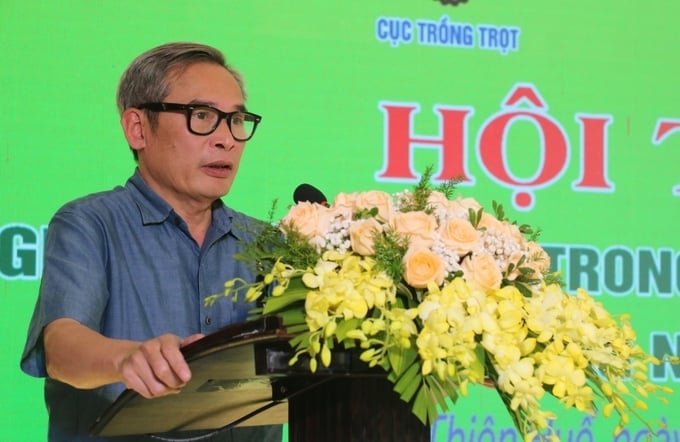
Mr. Nguyen Nhu Cuong, General Director of the Department of Crop Production under the Ministry of Agriculture and Rural Development, emphasized: "Without a clear direction for development, the Vietnam's seed industry may fail to compete domestically." Photo: PT.
To this extent, the sector will focus on researching, selecting, breeding, importing, and transferring high-yield, high-quality crop varieties with resilience to pests and diseases, and climate change to meet market demands.
Additionally, efforts are directed towards innovating methods of crop variety management, utilization, and trading, and maintaining strict control over pesticides and fertilizers.
Another key focus of the strategy is the efficient use of resources, environmental protection, climate resilience, disaster prevention, reduction, and mitigation, as well as the development of concentrated commodity production areas in association with infrastructure development, post-harvest services, and trade promotion.
With an established overarching direction for the strategy, Mr. Nguyen Nhu Cuong requested the Association to encourage businesses to proactively participate in selecting and breeding new crop varieties, with a focus on underdeveloped areas such as vegetable and fruit varieties.
"Association members involved in the production linkage should also focus on connecting with cooperatives and farmers to stimulate the market. In the context of national crop variety breeding programs, state resources are limited whereas private resources are unrestricted. As a result, we always seek to learn, listen, share, and collaborate with businesses to effectively implement the strategy," affirmed Director Nguyen Nhu Cuong.
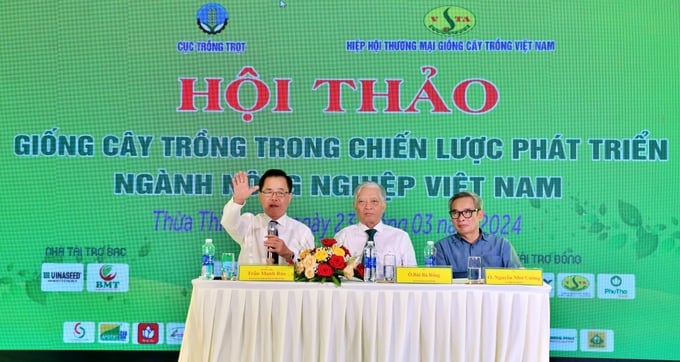
Hosts of the workshop, from left to right: Mr. Tran Manh Bao, Chairman of VSTA; Mr. Bui Ba Bong, Chairman of the Vietnam Rice Sector Association; Mr. Nguyen Nhu Cuong, General Director of the Department of Crop Production. Photo: PT.
Regarding the current state of research, selection, and production of agricultural crop varieties in Vietnam, Mr. Tran Xuan Dinh, Vice Chairman and General Secretary of VSTA, revealed that Vietnam's total export value of crop production reached over 27 billion USD in 2023, out of a total sector-wide value of over 53 billion USD. As a result, the crop production sector achieved an export surplus of over 11 billion USD.
Vietnam currently has four export sectors with an export value of 3 billion USD each, namely vegetables, rice, coffee, and cashews. Vietnamese rice was recently recognized as the world's finest rice for the first time.
Notably, the income per unit of production area has been increasing annually from 93.9 million Vietnamese dong per hectare to 104 million Vietnamese dong per hectare from 2018 to 2022. These achievements have contributed to alleviating poverty and creating employment opportunities, thereby ensuring food and socio-political security in Vietnam.
According to VSTA's report, following the introduction of new crop varieties, hybrid rice productivity has increased by 10 to 15%, pure rice productivity by 8 - 10%, corn productivity by 15 - 22%, sugarcane productivity by 15 - 20%, coffee productivity by 30 - 35%, soybean and peanut productivity by 30 - 35%, and dragon fruit productivity by 28 - 30%. Similarly, the quality and quantity of agricultural products have seen a significant improvement.
With regards to contributing to the overall development of Vietnam's agricultural crop variety sector, VSTA's businesses have hybridized, imported, selected, evaluated, and officially recognized a significant amount of rice and corn varieties over the years.
In the years between 2016 and 2020, VSTA has had 57 new rice varieties recognized as national varieties by the Ministry of Agriculture and Rural Development. Several VSTA's proprietary varieties have been planted extensively across multiple crops, and recognized as national brands.
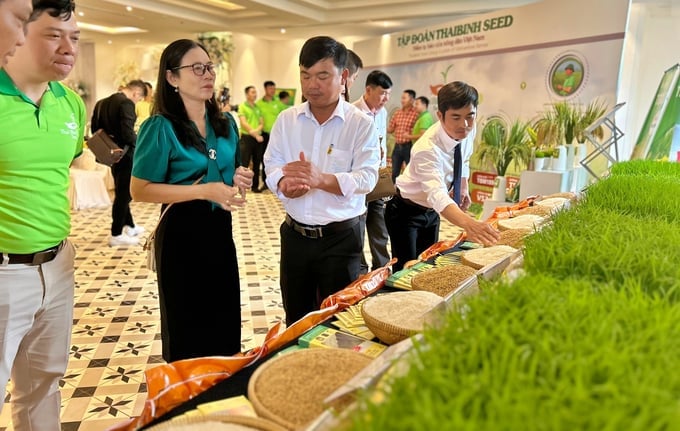
Businesses exchanging ideas and visiting crop variety exhibition booths on the sidelines of the workshop. Photo: PT.
VSTA has proactively participated in selecting and breeding high-quality rice varieties, including the ST24, ST25 fragrant rice varieties by entrepreneur Ho Quang Tri; RVT, Dai Thom 8 by Vinaseed; TBR39-1 by ThaiBinh Seed; Hana 112 by ADI, among others.
According to Mr. Tran Xuan Dinh, Vietnam's seed production system, despite its extensiveness, is limited by capacity, and fails to meet the practical requirements of commodity production and export orientation.
Mr. Tran Xuan Dinh attributed this limitation to shortcomings in legal regulations, unnecessary procedures, and delays in the issuance of guiding documents. Notably, some documents are contradictory and lack feasibility, thereby preventing innovation and the application of new breeding technologies, as well as the release of agricultural crop varieties for circulation. Furthermore, the issue of copyright has not received sufficient attention.
Mr. Tran Xuan Dinh proposed the amendment of the Law on Crop Production as well as related decrees and circulars to enhance feasibility and practicality, thereby removing conflicts between different laws. Moreover, Mr. Dinh expressed his wish for solutions to address the issue of self-declared varieties circulating under various names for vegetable and flower varieties.
Similarly, Ms. Nguyen Thi Tam, General Director of the Vietnam Seed And High-Tech Agricultural Material Joint Stock Company, noted that the flower seed industry has not received adequate attention despite its potential and strengths, especially within the contexts of Vietnam's focus on expanding tourism.

Ms. Nguyen Thi Tam, General Director of the Vietnam Seed And High-Tech Agricultural Material Joint Stock Company, suggested the need for stronger policies to develop flower varieties. Photo: PT.
In addition, Ms. Tam suggested that there is a need for policies to attract labor and scientific researchers in crop variety development. The quality of inputs for crop variety research, and for the agricultural sector as a whole, will greatly depend on scientific and technological factors.
According to Mr. Hoang Quang Phong, Vice Chairman of the Vietnam Chamber of Commerce and Industry (VCCI), the production of high-quality agricultural products to meet domestic and export demands will require comprehensive integration between various stages in the organizational linkage process, with the first stage and crop varieties playing the most crucial role.
"When these bottlenecks are resolved, Vietnamese agricultural products will have the opportunity to reach even further into the international market. To this end, we cannot rely solely on farmers but we must also commercialize farming households with regards to the sector's development strategy," proposed Vice Chairman of VCCI.
Translated by Nguyen Hai Long
![Turning wind and rain into action: [10] Advancing accessible climate services for farmers](https://t.ex-cdn.com/nongnghiepmoitruong.vn/608w/files/linhnhp/2025/06/20/1911-z6704423696987_15fd32ffc26d590d204d520c9dac6786-nongnghiep-161854.jpg)
(VAN) Not only does it help farmers 'avoid droughts and rains,' the development of agricultural climate services also enhances their ability to proactively adapt to a rapidly changing climate.

(VAN) With international assistance, the harvesting of sargassum seaweed in Quang Ngai has become increasingly regulated, thereby safeguarding marine life and ensuring the stability of coastal communities' livelihoods.
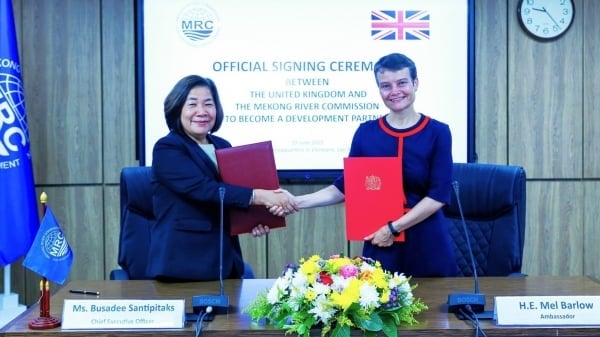
(VAN) On June 19, the United Kingdom officially became a Development Partner of the Mekong River Commission.

(VAN) Biodiversity is being threatened by traditional remedies made from wildlife. Traditional medicine and humans must change to live in harmony with nature.

(VAN) Agrifood investment and finance solutions for people and the planet.

(VAN) Microplastic contamination has become pervasive in seafood, posing unprecedented challenges for food safety and marine ecosystems.
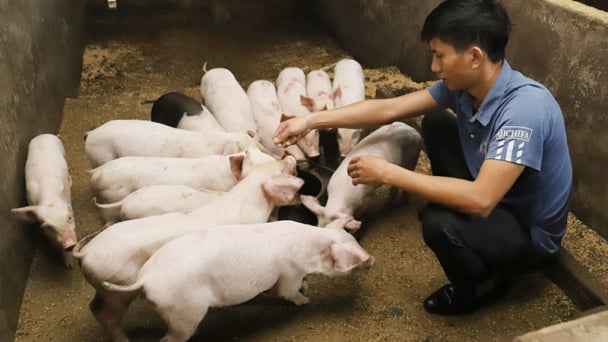
(VAN) Proactively using vaccines, combined with transport control and enhanced surveillance, is the only viable path toward biosecure and sustainable livestock production in Vietnam.